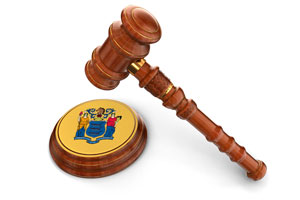A New Jersey administrative law judge has barred the introduction of digital evidence when experts were unable to explain how the data was collected.
The Allegations
The State of New Jersey filed charges against John Savadjian, alleging that he transferred “orphan” accounts, or accounts without a servicing agent, to his book of business without authorization from his supervisors or the account owners.
Savadjian is an insurance producer, which makes him subject to the New Jersey Insurance Producer Licensing Act. N.J.S.A. 17:22A-26 et seq. The Producer Act prohibits fraudulent, coercive, or dishonest practices. Prudential procedures required agents to have a policyholder’s signed consent prior to transferring their account to their book of business.
Savadjian’s supervisor sent faxes approving the transfer of a limited number of orphaned accounts to his book of business without the policyholders’ signed consent. New Jersey alleges that, without the knowledge or approval of that supervisor, Savadjian used those same fax letters multiple times to move additional additional orphan accounts to his book of business.
New Jersey also alleges that Savadjian forged the signature of account holders authorizing the transfer of their accounts and that he misrepresented his identity to Prudential’s customer service office over the phone.
Savadjian denied all allegations.
Administrative Law Hearing
New Jersey presented a CD with recordings of phone calls that had been allegedly made by Savadjian and a spreadsheet that showed the metadata of the calls to enter into evidence. Savadjian objected, arguing that the items were not authentic because the audio recordings had been stripped of their metadata.
The state planned to call Thomas Schreck, director of Prudential’s corporate investigation to testify as an expert witness. Schreck had reviewed the calls and worked with the employee who had created the report containing the metadata of the phone calls. Schreck was expected to authenticate the evidence.
Prior to Schreck’s testimony, he was suspended from Prudential. The state said that Prudential would provide another expert to authenticate the evidence in the case.
The Department of Banking and Insurance presented Charles Shanley, a director in Prudential’s corporate investigation division as an alternative expert to authenticate the evidence. Shanley testified that he had completed hundreds of investigations for Prudential, but had not been personally involved in the investigation of Savadjian.
During Shanley’s testimony, the cross-examination “revealed just how little he knew about the audio recordings at issue and the software system that recorded them.” Shanley also admitted that he did not have enough knowledge to disagree with Savadjian’s expert, who questioned the authenticity of the recordings.
Administrative Law Judge Barry Moscowitz ruled that the commissioner of Banking and Insurance could not admit into evidence audio recordings of calls that were allegedly made by Savadjian when he worked for Prudential Insurance. He wrote, “All Shanley knows is that the CD, the spreadsheet and the report, which DOBI seeks to admit into evidence, match the ones that someone in Prudential’s legal department gave to him in 2016. As such, Shanley does not know whether the CD, the spreadsheet or the report — which DOBI says are from 2013 — were altered between 2013 and 2016, when Shanley reviewed them.”




